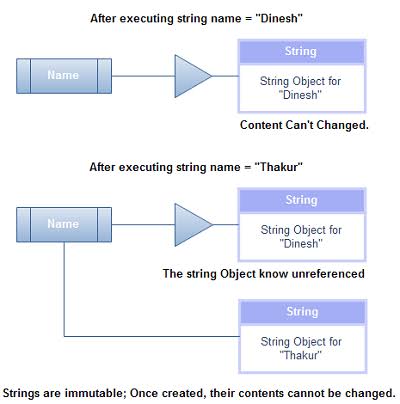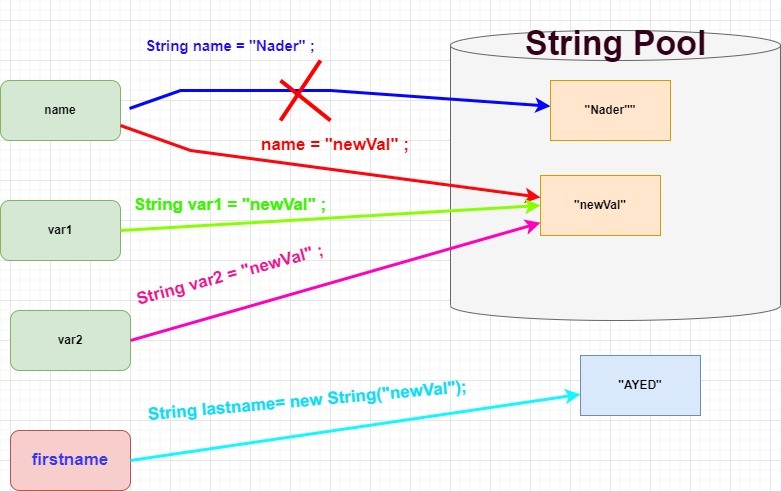Why Are Strings Immutable in Java? Enhancing Code Reliability
Why Are Strings Immutable in Java? Enhancing Code Reliability
Blog Article
The Development of Immutable String Handling: An Essential Element of Software Application Development
In the complex realm of software application advancement, the handling of immutable strings stands as a keystone that has gone through substantial development over time. From its humble origins to the facility challenges encountered in very early applications, the trip of unalterable string manipulation has been a vital facet of software engineering. As we browse through the historic landscape of this basic idea, mapping the advancements, safety effects, and emerging fads, we locate ourselves at a juncture where the intrinsic worth of understanding this development ends up being significantly obvious.
Origins of Immutable Strings
When designers sought to enhance the integrity and safety and security of information managing systems,The principle of unalterable strings traces back to the very early days of programming languages. Immutable strings describe strings that can not be transformed after they are created. This essential idea was introduced to deal with issues concerning information stability and prevent unintended modifications to important info stored as strings.

Moreover, unalterable strings contribute to boosting the general safety of software application systems (Why are strings immutable in Java?). By avoiding unapproved parties from meddling with delicate string data, unalterable strings help minimize the risk of information breaches and unauthorized accessibility to private information. This foundational concept proceeds to play a vital function in modern-day shows languages and stays a foundation of protected and durable software application development practices
Early Difficulties and Solutions
Navigating the landscape of early software application development posed substantial hurdles in making certain the stability and protection of information handling devices. One of the primary difficulties in taking care of unalterable strings was managing memory successfully. In early systems, memory allotment and deallocation were hand-operated processes, resulting in possible memory leaks and vulnerabilities. Additionally, making sure that strings continued to be unchanged proved to be complicated, specifically when multiple parts of the codebase required to gain access to and change data.
To address these challenges, designers began carrying out data encryption strategies to shield delicate information stored in immutable strings. Encryption assisted guard data from unauthorized gain access to and control. In addition, the intro of hashing algorithms provided a means to verify the integrity of immutable strings by generating one-of-a-kind checksums based upon their components. If any kind of adjustments had happened, these checksums enabled for quick comparisons to identify. By integrating security and hashing approaches right into the handling of immutable strings, developers dramatically enhanced the safety and security and reliability of information within software systems.

Innovations in String Immutability
In software program growth, a remarkable development in the handling of unalterable strings has actually emerged through improvements in information encryption and hashing methods. By utilizing protected hash algorithms like SHA-256 or cryptographic techniques such as AES security, developers can ensure that delicate info stored in unalterable strings remains safe and secure and tamper-proof. These innovations have actually boosted check this the honesty and privacy of data within applications, particularly in fields where information safety is vital, such as financing, health care, and cybersecurity.
Additionally, advancements in string immutability have led the way for boosted efficiency optimization. Immutable strings enable much more reliable memory management and caching methods, lowering the overhead linked with frequent string controls (Why are strings immutable in Java?). This optimization not just improves the general responsiveness of software program applications yet also adds to far better scalability and resource use
Security Effects and Best Practices
With the foundation laid by improvements in string immutability, understanding the protection implications and applying finest techniques becomes critical in securing delicate data within software applications. Unalterable strings play a crucial role in improving safety by avoiding unapproved alterations to data, making certain data integrity throughout the application's lifecycle. By utilizing immutable strings, designers can alleviate usual vulnerabilities such as shot assaults, barrier overflows, and information tampering, which are typically made use of by destructive actors to compromise systems.
To improve safety and security additionally, ideal techniques ought to be adhered to when taking care of delicate details. This consists of encrypting data at rest and en route, carrying out appropriate gain access to controls, utilizing protected coding practices, and frequently upgrading software program parts to spot recognized susceptabilities. In addition, programmers ought to abide by the principle of least advantage, making certain that just required consents are approved to customers and procedures. By including these protection procedures and best techniques into software growth procedures, organizations can much better secure their data assets and lessen the danger of security violations and data leakages.
Future Trends in String Handling
Amidst the ever-evolving landscape of software program development, the trajectory of string handling is positioned to witness considerable innovations and advancements. One of the crucial future fads in string handling is the enhancing he said emphasis on efficiency optimization. As software applications proceed to grow in intricacy and range, the efficient handling of strings becomes important for keeping optimal performance. Programmers are exploring new formulas and information frameworks to enhance the rate and efficiency of string operations.
Additionally, one more pattern why not check here on the perspective is the assimilation of man-made knowledge (AI) and machine understanding (ML) in string handling tasks. AI-powered devices are being created to automate and streamline numerous string adjustment procedures, bring about raised performance and accuracy in software development workflows.
Additionally, there is an expanding focus on improving the protection facets of string managing with advanced security strategies and safe coding techniques. As cyber hazards remain to progress, making certain the honesty and privacy of data within strings is becoming a leading concern for designers. By adopting durable safety steps, such as encryption at rest and in transit, developers can minimize the dangers related to string manipulation susceptabilities.
Verdict
Finally, the development of immutable string handling has actually been a critical facet of software application development, beginning with its beginnings to the advancements made recently. Early challenges have actually been addressed with innovative options, bring about improved protection methods in taking care of strings. It is necessary for programmers to stay updated on the current fads in string immutability to guarantee the effectiveness and safety and security of their software applications.
Immutable strings refer to strings that can not be transformed after they are produced. Why are strings immutable in Java?. By avoiding unapproved events from tampering with sensitive string information, unalterable strings help minimize the danger of information breaches and unauthorized access to personal info. By incorporating encryption and hashing approaches right into the handling of unalterable strings, developers substantially boosted the security and dependability of information within software application systems
Unalterable strings allow for much more effective memory management and caching techniques, reducing the expenses connected with constant string adjustments. Unalterable strings play an important function in boosting protection by stopping unauthorized modifications to data, guaranteeing data integrity throughout the application's lifecycle.
Report this page